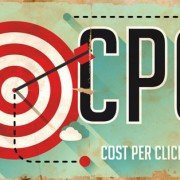Tips for Setting up Your PPC Campaign

If you’re under the impression that launching a Pay-Per-Click (PPC) campaign will instantly flood your website with traffic and conversions, it’s time for a reality check. A successful PPC campaign requires meticulous planning, ongoing optimisation, and a deep understanding of your target audience. In this article, we’ll walk you through the key elements you need to consider for a robust PPC strategy.
Identifying the Right Keywords
Broad Terms and High Bounce Rates
One of the first steps in setting up a PPC campaign is keyword selection. Opting for broad search terms may seem like a good idea initially, but it often leads to high bounce rates. The key is to focus on specific, relevant keywords that align with your business goals.
Negative Keywords
In addition to selecting the right keywords, it’s crucial to identify negative keywords. These are terms that you don’t want your ads to show up for, as they are not relevant to your business and can waste your advertising budget.
Selecting Match Types for Keywords
Choosing the right match types for your keywords is a critical step in fine-tuning your PPC campaign. Match types determine how closely a user’s search query needs to align with your chosen keywords for your ad to appear. Google Ads offers several match types, including:
- Exact Match: Triggers your ad only when the exact keyword or close variations are searched.
- Phrase Match: Your ad appears when the exact phrase is part of the search query.
- Broad Match: The most inclusive match type, triggering your ad for searches that include any word in your keyword phrase, in any order.
Selecting the appropriate match types can significantly impact your campaign’s performance. It can affect your ad’s visibility, click-through rate, and ultimately, the ROI. For a more in-depth understanding, you can refer to Google’s official guide on keyword match types.
Creating Enticing Ad Copy
Writing good and enticing ad copy is an integral part of managing a PPC campaign. Including your chosen keywords in your ad copy of course makes sense, but don’t overdo it. Again, keep it focused. Provide those searching for your products and services with details that will inspire them to click through to your website. Make it short but sweet remembering you only have 25 characters for a thought-provoking title, and 2 lines of 35 characters each to capture your prospective visitors’ attention.
Landing Page Relevance
Driving traffic to a relevant landing page is essential for a successful PPC campaign. The landing page should be easy to navigate and include a clear call-to-action (CTA) to guide the user towards conversion.
Utilising Google Ad Extensions
Sitelinks Extensions
Sitelinks can improve your click-through rate by providing additional, relevant links to various pages on your website. These often appear when your ad is displayed above organic search results.
Call Extensions
If you’re keen on tracking the number of impressions and clicks your campaign receives, call extensions are a must. These appear either at the top or on the right-hand side of the search results page.
Callout Extensions
Callout extensions offer additional static content below your ad, providing more details about your services. This could include special offers, free delivery, or other incentives to click through to your website.
By creating ad extensions you’ll find you may receive a better click-through rate.
Professional Management is Key
Managing a PPC campaign is a time-intensive task that is best left to professionals. If you find the process overwhelming, consider hiring an expert to handle it for you.
Future Steps
In upcoming articles, we’ll discuss how to review your performance data and steps to enhance the effectiveness of your paid search campaigns.
For further reading, you might find Google’s official guide on PPC useful.









Leave a Reply
Want to join the discussion?Feel free to contribute!